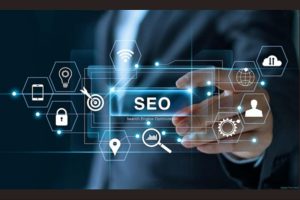
Digital Marketing and AI world of today, companies are always looking for new and creative methods to interact with clients and spur expansion. Over the pastten years, digital marketing—which includes a variety of online tactics for promoting goods and services—has undergone substantial change. Artificial intelligence (AI) is a key player in this process and has started to change the way marketers approach their campaigns.This article examines the benefits, drawbacks, integration, and potential future developments ofdigital marketing with artificial intelligence.
Comprehending Digital Marketing
Digital marketing is the process of connecting with potential customers through digital channels like websites, email, social media, and search engines. It includes a range of strategies, such as pay-per-click (PPC), social media marketing, content marketing, and search engine optimization (SEO).email marketing, pay-per-click (PPC) advertising, social media marketing, and content marketing. Digital marketing’s main objective is to successfully contact a certain audience and win their loyalty as clients.
AI’s Ascent in Digital Marketing
AI is becoming more and more popular in many industries, and its use in digital marketing is especially revolutionary. Data analytics, machine learning, and natural language processing (NLP) are examples of AI technologies that are changing the way marketers gather, process, and use data. With the use of these technologies, marketers may anticipate customer behavior, optimize campaigns, and tailor customer experiences.
Important Uses of AI in Online Advertising
- Targeting and Personalization: The capacity of artificial intelligence (AI) to evaluate enormous volumes of data and provide users with individualized content is one of its greatest benefits. By monitoring the preferences and actions of users, Marketers can generate personalized messages and suggestions with the use of AI. For instance, e-commerce platforms employ AI algorithms to make product recommendations based on users’ browsing and buy histories, greatly improving user experience and conversion rates.
- Chatbots and Customer Service: Chatbots driven by artificial intelligence are transforming customer service inside digital marketing. These virtual assistants may interact with clients in real time, respond to questions, and handle problems around-the-clock. Businesses can lower operating expenses and increase customer satisfaction by offering immediate support. Chatbots have been effectively deployed by companies such as Sephora and H&M to improve user interaction and boost revenue.
- Predictive Analytics: With predictive analytics, artificial intelligence (AI) helps marketers predict future trends and customer behavior. Businesses may make well-informed decisions about product introductions, marketing tactics, and inventory management by examining past data and spotting trends. Businesses are able to maintain an advantage over their competitors and manage resources more efficiently thanks to this capacity.
- Content Creation: AI tools are being utilized more and more to produce content. AI can help with the writing of blog articles, social media updates, and even product descriptions, but human ingenuity will always be valued above all else. Marketers may increase their content efforts without sacrificing quality by using tools like GPT-3 to produce text that is both cohesive and relevant.
- Ad targeting and optimization: By examining user data and behavior, AI systems maximize the effectiveness of ad targeting. ROI is increased when advertisements are able to reach the appropriate audience at the appropriate moment. AI-powered programmatic advertising streamlines the ad buying process and enables companies to buy ad space in real-time based on user data.
Advantages of AI Integration for Digital Marketing:
- Increased Productivity: AI reduces time-consuming work, allowing marketers to concentrate on strategic planning and innovative projects. Efficiency is increased when repetitive processes like data analysis, social media posting, and email marketing are automated.
- Data-Driven Decisions: By analyzing data, artificial intelligence (AI) generates actionable insights that help marketers make wise choices. This feature lowers the possibility of expensive errors while increasing the effectiveness of campaigns.
- Better Customer Experience: AI-powered personalized marketing increases customer happiness and engagement. Businesses may strengthen their client relationships by providing timely interactions and pertinent material.
- Cost reduction: By determining the most efficient channels and tactics, AI may assist companies in making the most of their marketing spending. Higher returns on investment and better resource allocation result from this optimization.
Difficulties in Using AI in Digital Marketing
The application of AI in digital marketing is not without difficulties, despite its many benefits:
•Data Privacy Issues: Because AI uses a lot of data, companies need to comply with a number of complicated privacy laws, including the CCPA and GDPR. One of the biggest challenges in usingdata for customisation is maintaining compliance.
- High Initial Investment: Investing a significant amount of money up front in infrastructure, tools, and training may be necessary to use AI technologies. It could be difficult for smaller companies to commit resources on AI integration.
- Dependency on High-Quality Data: The efficacy of AI is reliant on the caliber of the data it examines. Inaccurate forecasts and less-than-ideal marketing tactics can result from incomplete or skewed data.
- Skill Gap: When it comes to AI technologies, marketing professionals frequently lack the necessary expertise. To properly use AI, organizations might need to make training investments or acquire expert personnel.
AI and Digital Marketing’s Future
AI technology will probably be much more deeply integrated into digital marketing in the future. Marketing professionals will be able to obtain increasingly detailed insights into customer behavior as machine learning models advance in sophistication. Furthermore, the emergence of voice search and AI-powered voice assistants will change the way companies communicate with their clientele.Furthermore, AI’s use in marketing will be significantly shaped by ethical issues surrounding it. To gain the trust of customers, businesses must place a high priority on openness and the ethical use of data.
In summary
A new era of consumer involvement and marketing techniques is being ushered in by the combination of Digital marketing and AI. Businesses may increase productivity, improve customer experiences, and spur growth by utilizing AI. Although there are still obstacles to overcome, incorporating AI into digital marketing has enormous potential advantages. Marketers who use AI will be well-positioned to prosper in an increasingly competitive environment as technology advances. Those who can successfully negotiate this intersection and use AI to build genuine connections with their audience will be the ones in the future.
